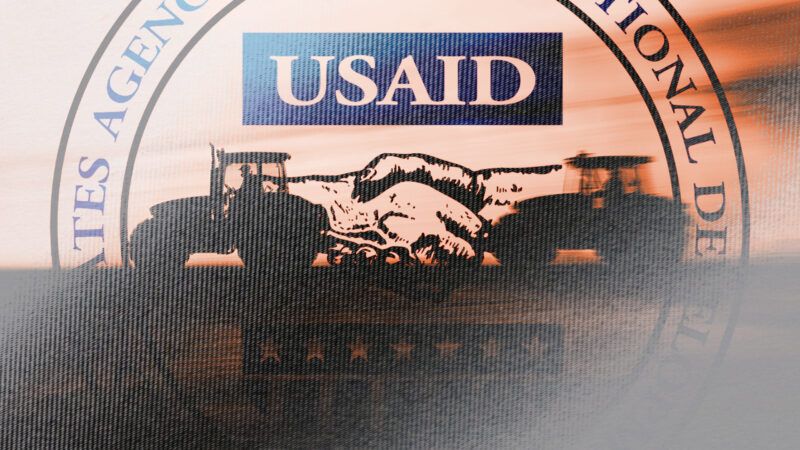Why Is Foreign Aid Going To American Farmers?
Subsidizing American farmers is not a valid justification for the U.S. Agency for International Development.

The Senate Homeland Security and Governmental Affairs Committee hosted a hearing on Thursday to discuss eliminating waste by the foreign aid bureaucracy. Sen. Richard Blumenthal (D–Conn.) objected to the 90-day pause on the United States Agency for International Development (USAID) on the grounds that doing so would hurt American farmers. Of all the arguments that can be made in defense of USAID, subsidizing foreign demand for American agricultural products misdirects resources from charity to self-dealing.
Sen. Rand Paul (R–Ky.), chairman of the committee, began the hearing by stating that America "should not be the sugar daddy for the entire world," emphasizing the nation's $36 trillion of debt. Paul proceeded to go through a list of USAID programs whose relevance to American national security interests is charitably characterized as tenuous.
Paul recounted how the agency paid "a group of Ukrainian women-led designers to travel to the Paris fashion show"; spent "$2 million on transgender surgeries, hormone therapy, and gender-affirming care in Guatemala"; spent "$20 million [to] produce a new Sesame Street show in Iraq"; spent "$6 million to promote sustainable tourism in Egypt"; spent "50 million on Tunisia's tourism"; and invested "$87.9 million to help Afghans farm," which unintentionally subsidized the production of opium.
Minority members of the committee were unwilling to "just say 'no' to wasteful foreign aid," as Paul asked them to. No member disputed the accuracy of the USAID projects listed by Paul. Instead, members objected to the suspension of foreign aid programs on other grounds.
Sen. Gary Peters (D–Mich.) said that President Donald Trump's shuttering of USAID "will have damaging consequences across the globe" and entered expert testimony into the record to substantiate his claim. Sen. Maggie Hassan (D–N.H.) pointed to Trump's removal of the Health and Human Services inspector general, who "identified $7 billion last year in waste, fraud, and abuse within the department," as belying Republicans' stated interests in reducing waste and fraud. Sen. Andy Kim (D–N.J.) affirmed that USAID is essential to American diplomatic efforts and objected to a dismantling of the agency and its staff.
Blumenthal's opening remarks echoed those of his Democratic colleagues, objecting to Trump's "unlawful dismantling of a congressionally established agency." Blumenthal then departed from his fellow minority members by calling attention to how the pause would affect American farmers: "The president of the Iowa Farmers Union said 'USAID is important for farmers' [and] the Ohio Farmers Union president said 'USAID plays a crucial role in not only providing food aid to millions around the world but also directly purchasing grain from Ohio farmers.'"
USAID was established via executive order by President John F. Kennedy in 1961 with the purpose of "administering aid to foreign countries to promote social and economic development," in accordance with the Foreign Assistance Act of 1961. USAID was not established to subsidize American agriculture. The Department of Agriculture already does so to the tune of tens of billions of dollars a year comprising direct payments administered by the Commodity Credit Corporation and by covering more than half of crop insurance premiums via the Federal Crop Insurance Corporation.
If USAID resumes alleviating global hunger after the 90-day pause, it should distribute nutritious food in the most efficient way possible—not in the way that provides the most rents for American farmers.


Show Comments (54)